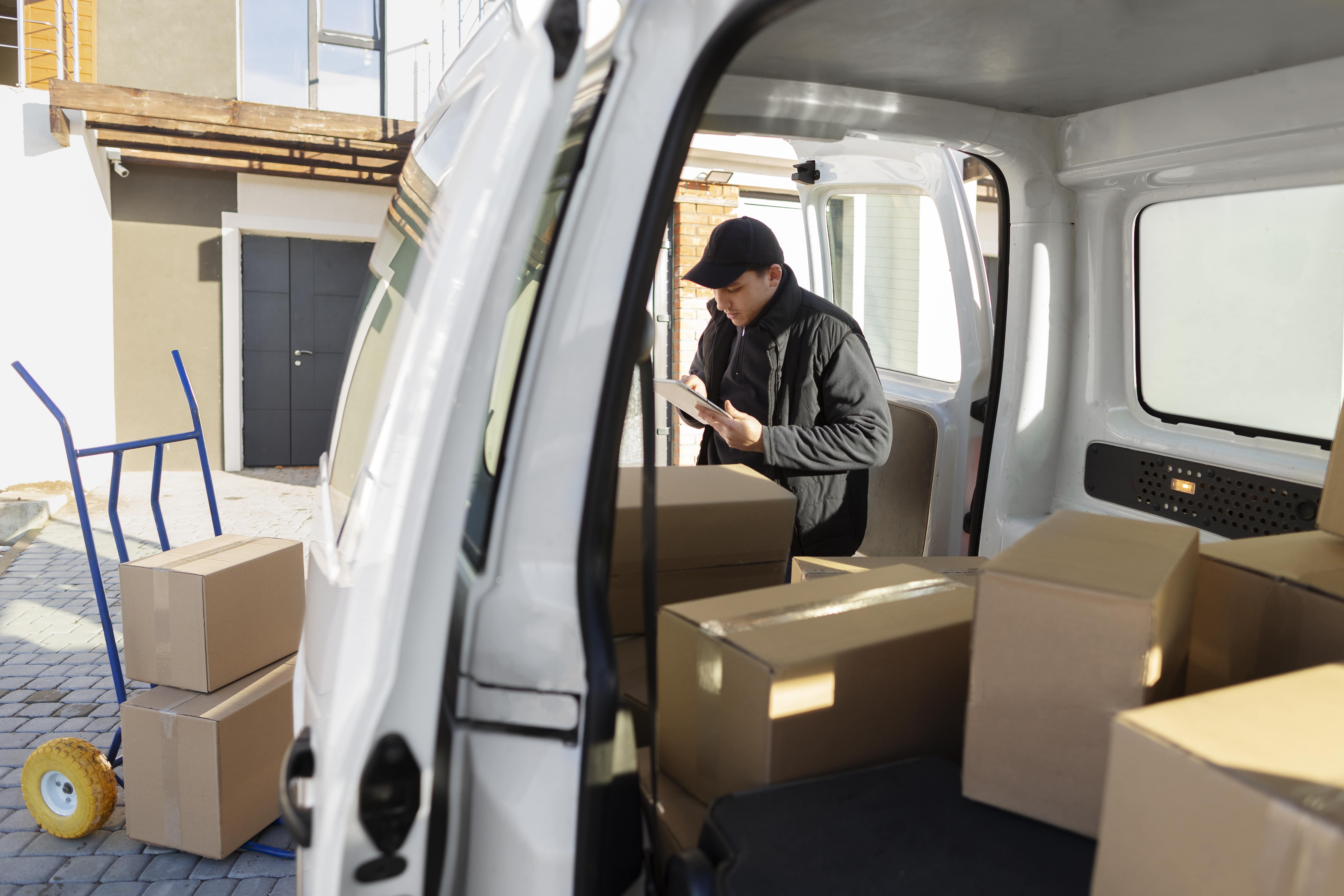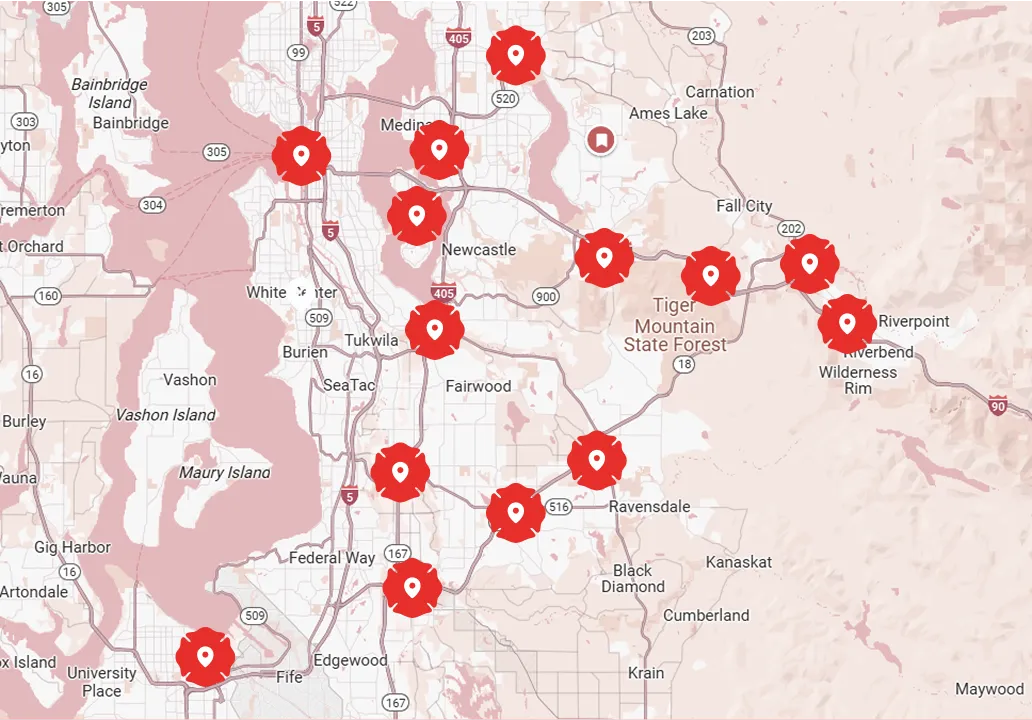State to State Movers in Kirkland, WA
.webp)
State-to-state moving for Kirkland residents requires strategic routing, regulatory awareness, and careful packing for long-distance transit. This guide outlines how professional movers handle interstate routes, weather and traffic considerations around Kirkland, and the value of permits and storage options. It covers common move types, such as full truckload and consolidated shipments, along with packing standards, moisture control, and specialized item protection. It also explains insurance choices, declared value, and claims processes, helping homeowners compare providers and choose appropriate protections.

Moving State to State Movers in Kirkland, WA
Moving across state lines from Kirkland, WA requires planning tuned to long-distance transit, regulatory differences, and the local realities of the Eastside. This page explains what to expect from professional state-to-state moving services in Kirkland, WA — from routing and transit times to packing standards for long trips and the insurance and valuation choices that protect your belongings. Use this information to compare providers and confirm the specific services and protections your move needs.
Why specialized state-to-state moving matters for Kirkland residents
Moving long distance is not just a bigger local move. It involves multi-state routing, longer transit windows, federal and state carrier requirements, and weather or road variations that can affect delivery timing. In Kirkland, your move plan must also account for Westside traffic patterns, possible ferry routing for some destinations, seasonal mountain pass conditions, and local parking and loading constraints in residential neighborhoods. Proper transit planning reduces damage risk, unexpected delays, and claim disputes.
Common state-to-state move types and scenarios
- Full truckload interstate moves for single-family homes or large households
- Partial or consolidated shipments (shared truck space) for smaller households on a budget
- Long-haul moves to the southern or central states where transit takes multiple days
- Moves that require temporary storage during interstate routing
- Moves involving specialty items: pianos, antiques, fine art, or large appliances
Common state-to-state moving issues in Kirkland and how professionals address them
- Traffic and access limitations: Narrow streets, cul de sacs, and limited curb space in Kirkland neighborhoods require advance parking permits or alternate loading locations. Professional movers plan loading windows and secure temporary parking when needed.
- Weather and humidity: Pacific Northwest dampness can affect wood furniture and paper items on prolonged trips. Movers use moisture-resistant packing and interior truck climate practices to limit exposure.
- Mountain passes and seasonal closures: Routes crossing the Cascades may require detours or chain requirements in winter. Routing plans include alternate corridors and seasonal timing to avoid avoidable delays.
- Multi-state regulation and permits: Oversize or heavy loads may require permits in certain states. Professional interstate carriers handle regulatory compliance and route approvals.
Transit planning and multi-state routing
A reliable interstate move begins with a detailed route plan that considers distance, road geometry, and state rules. Key elements of transit planning include:
- Choosing the best corridor for speed and safety, balancing tolls and directness
- Scheduling pickup and delivery windows with realistic transit time buffers
- Planning mandatory rest breaks, driver hours of service, and legal weight limits
- Coordinating any required permits for oversized items or restricted roads
- Reserving space on consolidated loads when applicable so your shipment moves on schedule
Typical routing from Kirkland often uses I-405 to I-5 for north or southbound corridors, or I-90 for eastbound routes across the Cascades. Long-distance itineraries may include ferry transits for some Pacific coast destinations; these add scheduling steps and potential weather sensitivity.
Typical transit times by distance
Transit times vary by distance, service level, and whether your shipment shares truck space:
- Regional moves within the Pacific Northwest: 1 to 3 days
- West Coast moves (California, Oregon): 2 to 4 days
- Mountain West and inland states (Idaho, Utah, Colorado): 3 to 6 days
- Cross-country moves coast to coast: 5 to 10 days
- Consolidated/shared shipments can add 2 to 5 days depending on pickup windows and routing
These are general ranges. Expect longer windows if your shipment requires storage-in-transit or if routes include seasonal mountain restrictions.
Packing standards for long trips
Packing for interstate transit is focused on protection against vibration, shifting, moisture, and extended handling. High-quality packing standards include:
- Using double-walled cartons for fragile and heavy items
- Custom crating for high-value or nonstandard items like art or grandfather clocks
- Proper appliance preparation: drains, secure hoses, and stabilizing parts
- Wrapping furniture with moving pads and shrink wrap to guard against abrasion and moisture
- Palletizing electronics and boxed items for secure stacking in the trailer
- Labeling boxes by room and priority to simplify delivery and inspections
For Kirkland homes, emphasize moisture-resistant materials and internal packing for items sensitive to humidity. For very long hauls, movers may recommend desiccant packs in cabinetry or sealed crates for antiques.
Insurance, valuation, and protecting your goods between states
Interstate moves have distinct valuation and insurance options. Understand these terms and choose what fits your risk tolerance:
- Released value protection: Basic coverage required by federal regulations offering minimal reimbursement per pound per item. This is low cost but provides limited protection.
- Full value protection: The mover assumes liability for the replacement or repair value of lost or damaged items, often after deductibles. This is more comprehensive but costs more.
- Third-party transit insurance: Independent policies that offer broader coverage and higher limits for high-value collections or specialty items.
- Declared value: Listing a value for individual items or the entire shipment to establish coverage limits and calculate responsibility.
- Inventory and documentation: A thorough pre-move inventory with photographs establishes condition and can speed claims. Keep receipts for high-value purchases.
Claims processes require documentation, timely reporting, and original proof of loss or damage. Before moving, confirm exactly which option is included in your quote and how claims are handled across state lines.
The moving process: step by step
- Pre-move survey and written inventory to set service scope and valuation choices.
- Transit planning and route confirmation with estimated pickup and delivery windows.
- Professional packing or pack guidance using long-haul standards.
- Loading with secure blocking, tie-downs, and freight distribution to minimize shifting.
- In-transit tracking, periodic updates, and storage-in-transit if required.
- Delivery, unpacking options, and post-move inspection with signed inventory reconciliation.
Each phase includes documentation. For interstate moves, save pickup and delivery receipts, inventories, and any valuation agreements.
Benefits of timely professional planning and maintenance advice
Planning state-to-state moves with professional standards reduces risk, shortens transit uncertainty, and preserves the value of your items. Proper packing and declared valuation protect against common long-haul hazards. After delivery, simple maintenance actions help your items settle: allow electronics to acclimate to local temperature before powering on, inspect wooden furniture for moisture shift, and re-check appliance hookups.
Moving from Kirkland, WA across state lines introduces regional variables that experienced interstate movers anticipate and manage. Knowing the typical transit times, packing standards, and insurance choices puts you in control when comparing options and confirming the protections your household requires for a long-distance move.

